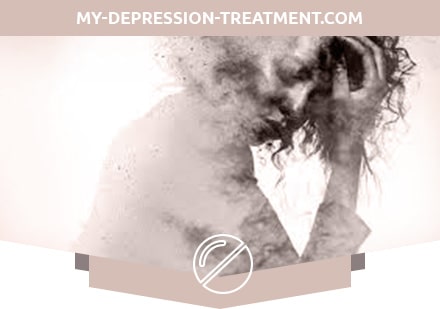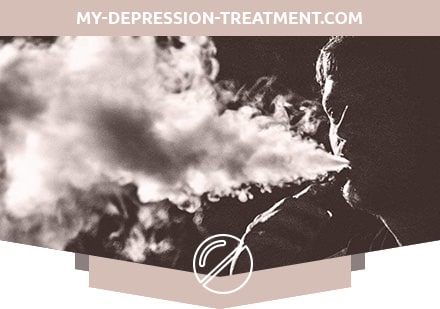
Stop Depression from Influencing your Health
Depression
Depression is a common and major disorder which has a negative effect on the way you think, you feel, and you act. It is a feeling of sadness loss or anger, which becomes a hurdle in a person’s daily activities. If left untreated depression can lead to various physical and emotional problems which can influence the person’s ability to function properly at work and at home. It can also result in some chronic health diseases. People saw improvement in symptoms in just after a few weeks of taking treatment.
Symptoms of depression
Depression symptoms can be ongoing, or they can become and go. Some of the symptoms can affect your mood, and some can affect your body. A depression symptom does not only exist in adults, but they can also occur in children as well. The following warning signs can show that you need to consult a doctor for depression:
- Lost interest
Depression can take pleasure from all your routine or daily activities. You may be feeling irritated from the entire task you once loved to do like sports, hobbies, and roaming around with friends.
- Increased fatigue and sleep problems
Lack of energy and overwhelming fatigue is the reason you might do things you used to enjoy. This can be among the most debilitating symptoms of depression. It can also cause insomnia and vice versa. Some patients may face a lack of sleep, whereas some may have the issue of increased sleep.
- Anxiety
If you have anxiety, which may include nervousness, restlessness, or feeling tense. It means that you have depression. Anxiety symptoms also include increased heart and breathing rate, increased seating, or trouble in concentrating on routine activities.
- Change of appetite and weight
Depression can fluctuate the weight and eating habits of the patient. Life seriously problem some people feel hungry and gain weight while others lose their appetite resulting in weight loss. The loss of weight lets the person feel lethargic and dull.
- Uncontrollable emotions
It becomes hard for the patients to control their emotions and feelings, for example, one minute they would be angry at every other thing, and the other moment they will be totally normal. The up and down of mood swingsis due to depression. This change can become a hurdle in family relations and social life.

Treatment of depression
Depression is curable with the help of psychiatrist and medications. The treatment of depression varies from person to person, and it’s different for everyone. However, effective treatment and health professionals can help you the way to recovery. Two types of treatment are available for depression, i.e. Medical and psychological treatment
Psychological Treatment
The psychological treatment works differently for every patient. Some people recover earlier with one on one with a psychologist while others prefer to work in a group environment. Psychological treatment includes Cognitive Behavioural Therapy, Interpersonal therapy, Mindfulness-based cognitive therapy.
Medical Treatment
The most common medical treatment is anti-depressants, and it can be very useful for mild to severe depression and also for the treatment of anxiety disorders. Anti-depressants are normally prescribed due to the severity of the condition or when psychological treatment is not helpful anymore. People with severe forms of depression will be recommended one or a combination of a mood stabilizer, antipsychotic drugs, and anti-depressants.
Types of Anti-depressants
A wide range of anti-depressants is available in the market used for the treatment of depression. Below is the description of these classes:
- Selective Serotonin Reuptake Inhibitors. It is the nonsedating, most commonly prescribed antidepressant, which includes sertraline, citalopram, escitalopram, paroxetine, fluoxetine, and fluvoxamine.
- Serotonin and Non-Adrenalin Reuptake Inhibitors. It contains venlafaxine, desvenlafaxine, and duloxetine. It is often prescribed for severe depression.
- Reversible Inhibitors of Mono Amine Oxidase. It is a non-sedating antidepressant with fewer side effects. It includes moclobemide, which is helpful for people having anxiety symptoms and sleep difficulties.
- Tricyclic antidepressants. It is effective with some side effects and includes nortriptyline, clomipramine, dothiepin, imipramine, imipramine, and amitriptyline. The blood pressure should be monitored while taking this antidepressant
- Noradrenaline-Serotonin Specific Anti-depressant. This only includes mirtazapine, which is useful in lowering anxiety and sleeping disorders, but it may cause weight gain.
- Noradrenalin Reuptake Inhibitors. It does not cause drowsiness or sleepiness like other anti-depressants as it includes reboxetine.

Side Effects of Anti-depressants
Although anti-depressant has side effects, it is important to continue taking them. With time, the benefit of anti-depressants overcomes its side effects. Common side effects of antidepressant include
- Having nausea and feeling sick
- Indigestion and stomach ache
- Dizziness
- Diarrhea or constipation
- Feeling agitated or anxious
- Some people suffer from headaches
- Insomnia or feeling very sleepy
- Los of appetite
- Weight gain and dry mouth
- Excessive sweating and at times blurring of vision
These side effects get better with time, and if they get worse, the patient should consult the doctor. Effective treatment of depression can reduce the chances of hurting him or herself.
Making a Decision about Anti-depressants
It can be a complex decision to make that which anti-depressant should be used. It is obvious that the doctor would take the ultimate decision after all the assessment and considerations, but it is the patient’s duty to provide all the possible information and symptoms occurring. They should also tell about their medical history.
Various type of anti-depressants medications are present, which are beneficial and effective for the patient, but the doctor can make the best decision according to the severity of the condition or disease. The medicine should be taken as recommended by the doctors.
Time Span Anti-depressants should be Taken
The period of anti-depressant medicines depends upon the severity of their condition and how their body responds after taking the medicines. Some people usually take it for 6-12 months while others might need it for a long time. However, these medicines shouldn't be stopped immediately. It should be done gradually under a doctor’s recommendation and supervision.
 DE
DE FR
FR IT
IT ES
ES


